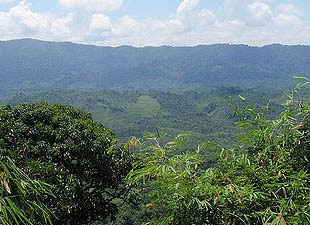Detecting cancer cell kill substance in a forest tree
Researchers at the Sarawak Center for Biodiversity, Malaysia (SBC) and Ohio State University are accelerating the development and commercialization of a compound that can kill cancer cells from a plant tropical forest.

Researchers have found a cancer-fighting compound in the Aglaia plant
The anticancer is silvestrol, a compound in the branches, fruits and shells of the Aglaia plant, found in Borneo, Indonesia, Malaysia and some Pacific islands. For years, this plant has been used to treat digestive disorders in Malaysia but has never been used to treat cancer.
Researchers at Ohio State University found that silvestrol is capable of killing cancer cells in mice. This opens up new ways to treat human cancer in the near future.
Alan Douglas Kinghorn, a senior researcher at the Ohio State University's Center for Oncology and a leading expert on silvestrol, also named the compound saying that silvestrol has The results are very positive for malignant B cells such as acute lymphoid leukemia or cystic cell lymphoma. Silvestrol also inhibits the growth of lung, breast and prostate cancer cells. The important thing is that silvestrol does not harm healthy cells of the immune system, overcoming the weaknesses of existing leukemia treatments.
The team is testing this compound in animals and hopes to conduct a human clinical trial within the next three to four years.
In order to conduct further research and development of silvestrol, the state of Ohio signed an agreement with SBC, whereby the University will exclusively monopolize the silvestrol compound of SBC. This center will provide raw materials for Ohio State University. In return, after the clinical trial is successful and the compound is commercialized, SBC will receive a share of royalties.
- Finding a powerful killer for cancer cells from the Central Highlands forest tree
- Discover how to destroy cancer cell structure
- The most exotic trees on Earth
- Changing the copy process of DNA can kill cancer cells
- Using a toxic substance in fungi to treat cancer
- Nano disks can kill cancer cells
- Thousands of years old oak forest revealed after the storm
- Russian and Swedish scientists have found a way to kill cancer cells
- The female doctor found the cancer treatment from Quang Tri forest tree
- Detecting drugs that treat lung cancer can kill HIV cells
- What is cancer? How does cancer form?
- Bringing turmeric into cancer treatment
 Why do potatoes have eyes?
Why do potatoes have eyes? 'Tragedy' the world's largest carnivorous life: Death becomes ... public toilet
'Tragedy' the world's largest carnivorous life: Death becomes ... public toilet Tomatoes were once considered 'poisonous' for 200 years
Tomatoes were once considered 'poisonous' for 200 years Detecting microscopic parasites on human face
Detecting microscopic parasites on human face